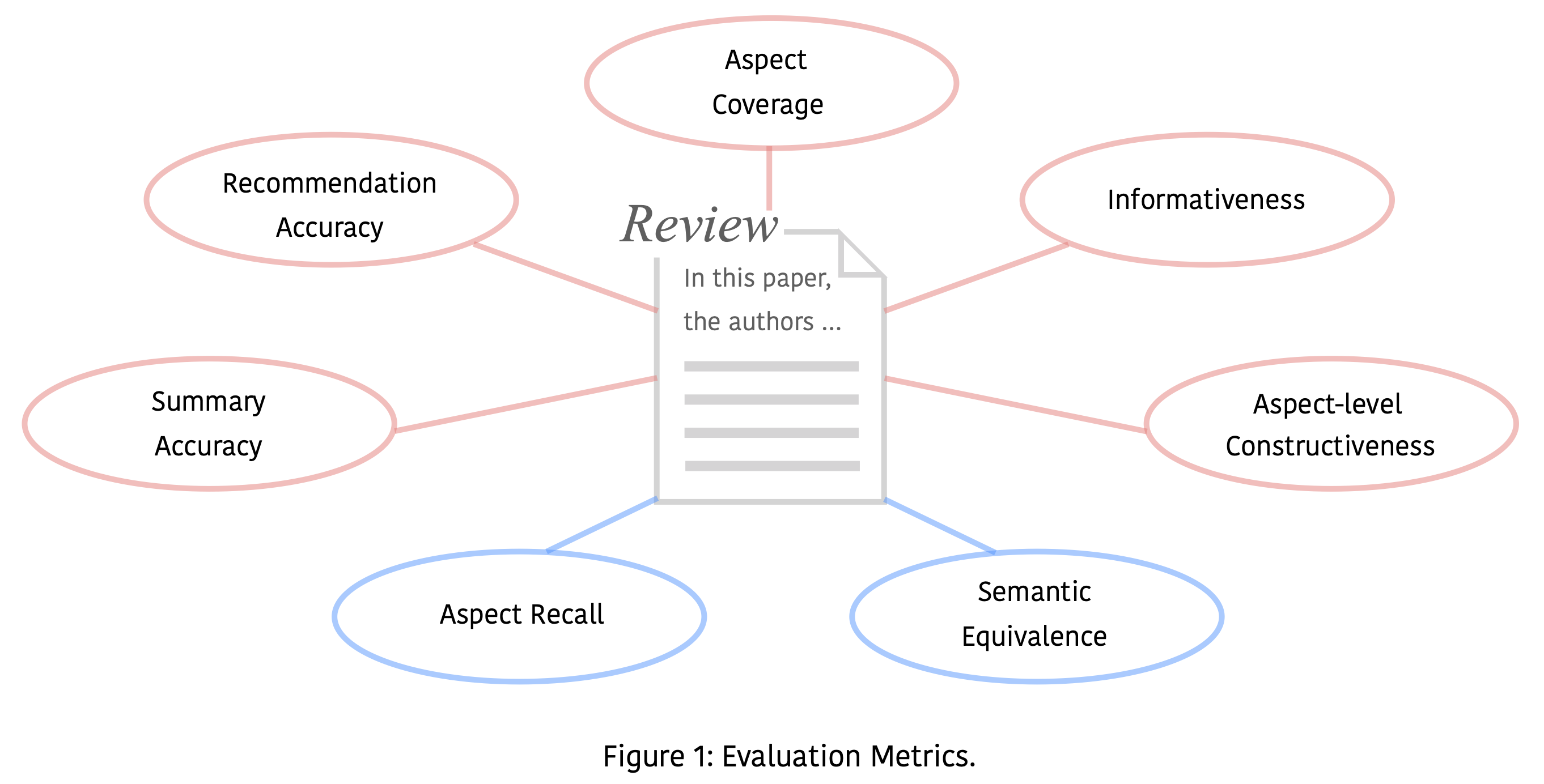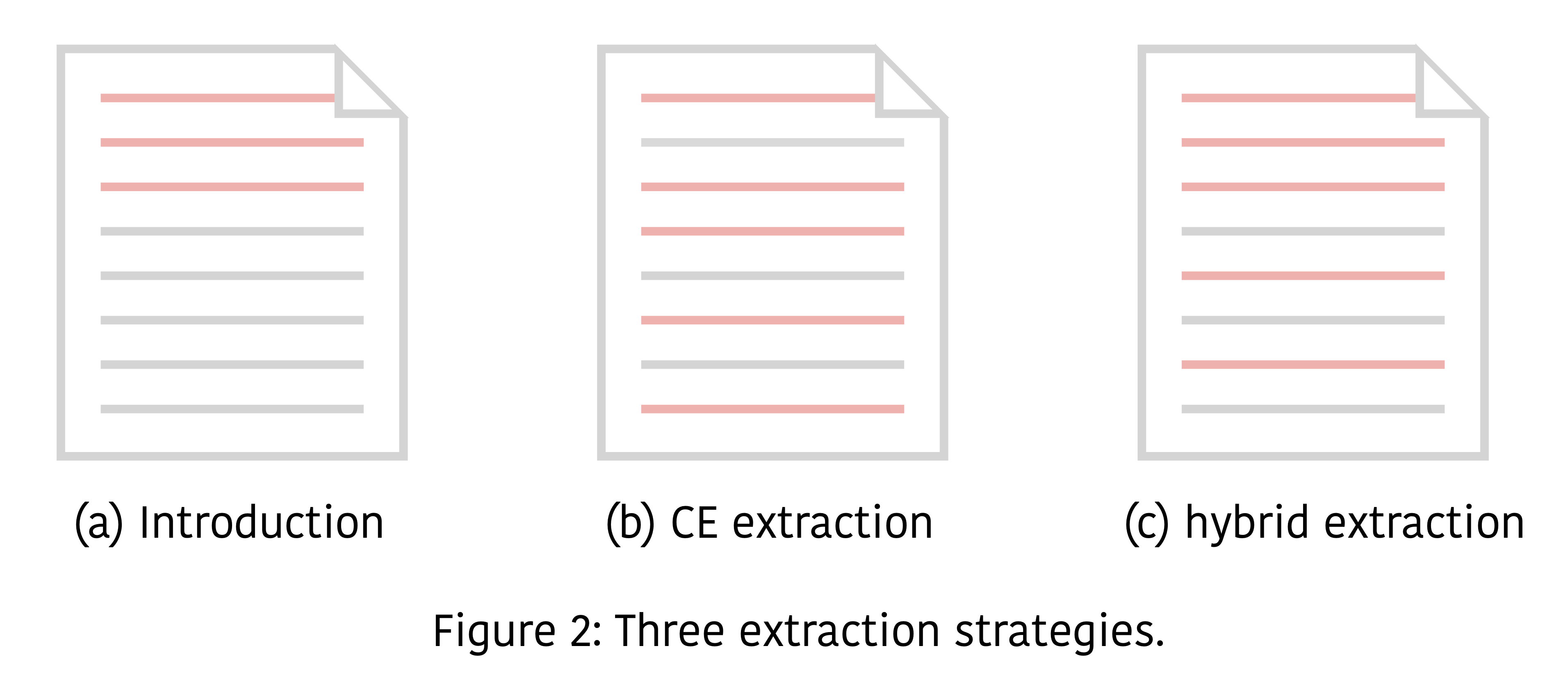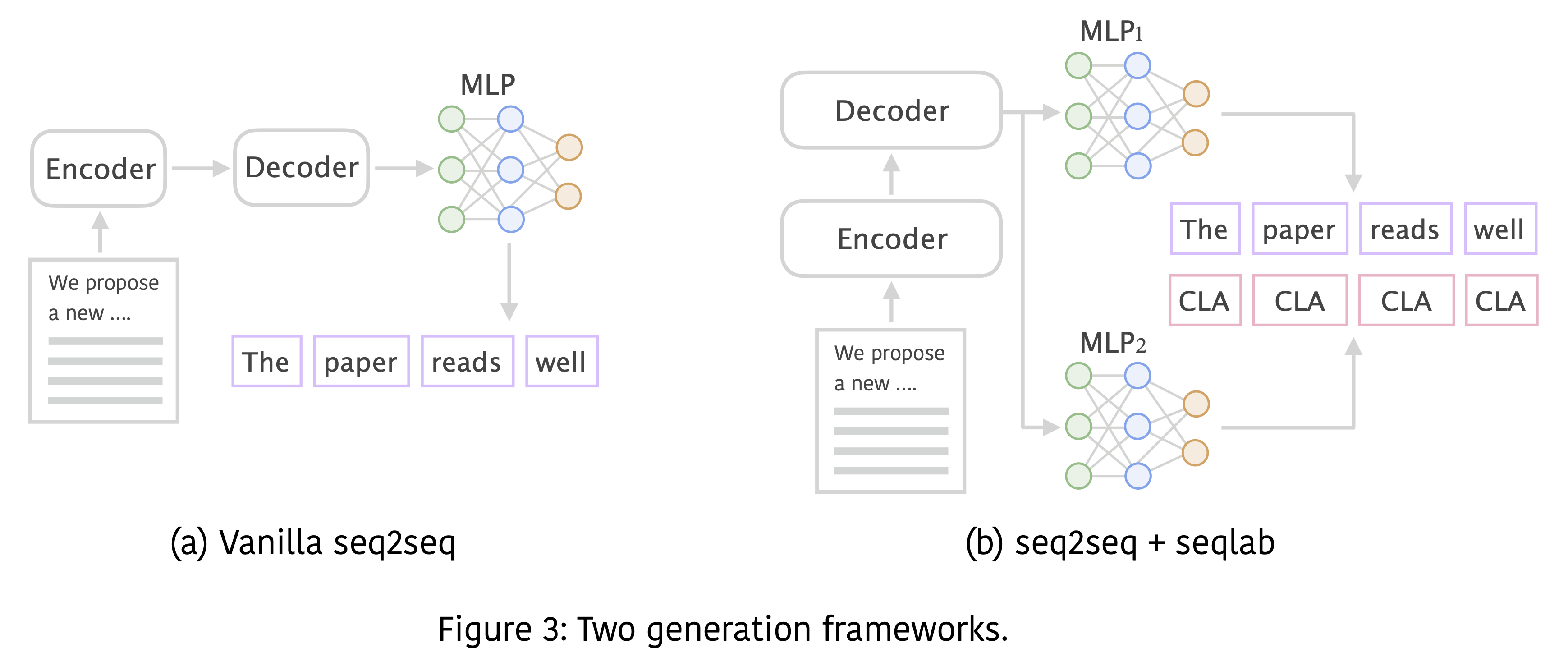Authors: Weizhe Yuan, Pengfei Liu, Graham Neubig
Have a TRY
To download our dataset, run
sh download_dataset.shThere will be a dataset folder that contains the data. Please read the README.md in dataset folder to know more about the details.
We first define two high-level objectives of scientific peer review following Jefferson et al. (2002a). and Smith (2006).
- Selecting high-quality submissions for publication.
- Improving different aspects of a paper by providing detailed comments.
We then make the first step towards review evaluation for scientific papers by proposing seven quantifiable metrics that can characterize a review from multiple perspectives. The evaluation metrics are shown in Fig.1, red represents absolute metric and blue represents relative metric.
We decompose review generation into two steps, and consider using a extract-then-generate paradigm.
We consider three extraction strategies, which can be visualized in Fig.2.
- Section-based Extraction
- Cross-entropy Method Extraction
- Hybrid Extraction
We consider two generation frameworks, which can be visualized in Fig.3.
- Vanilla Sequence to Sequence
- Jointly Sequence to Sequence and Sequence Labeling
To characterize potential bias existing in reviews, we define aspect score as the percentage of positive occurrences with respect to each review's aspects.
Absolute bias can be visualized directly by plotting the aspect scores of different groups w.r.t each aspect. An example is shown in Fig.4.
Relative bias quantifies the relative favor for certain groups between human reviewers and system reviewers. And we define a metric called disparity difference to measure relative bias. The calculation of disparity difference can be visualized in Fig.5.
We summarize eight eight challenges in the pursuit of a good review generation system.
- Model
- Long Document Modeling
- Pre-trained Model for Scientific Domain
- Structure Information
- External Knowledge
- Dataset
- More Open, Fine-grained Review Data
- More Accurate and Powerful Scientific Paper Parser
- Evaluation
- Fairness and Bias in Generated Text
- Reliability
We would like to thank people for their generous support, especially, Gábor Berend, Zhouhan Lin, William W. Cohen, Pengcheng Yin, Tiange Luo, Yuki M. Asano, Junjie Yan, Tuomas Haarnoja, Dandan Guo, Jie Fu, Lei Chen, Jinlan Fu, Jiapeng Wu, Wenshan Wang, Ziyi Dou, Yixin Liu, Junxian He, Bahetiyaer Bare, Saizheng Zhang, Jiateng Xie, Spyros Gidaris, Marco Federici, Junji Dai, Zihuiwen Ye Jie Zhou, Yufang Liu, Yue Zhang, Ruifeng Xu, Zhenghua Li, Chunting Zhou, Yang Wei, Jiahao Wang, Bowen Tan, Anda Zhou.
@misc{yuan2021automate,
title={Can We Automate Scientific Reviewing?},
author={Weizhe Yuan and Pengfei Liu and Graham Neubig},
year={2021},
eprint={2102.00176},
archivePrefix={arXiv},
primaryClass={cs.CL}
}






